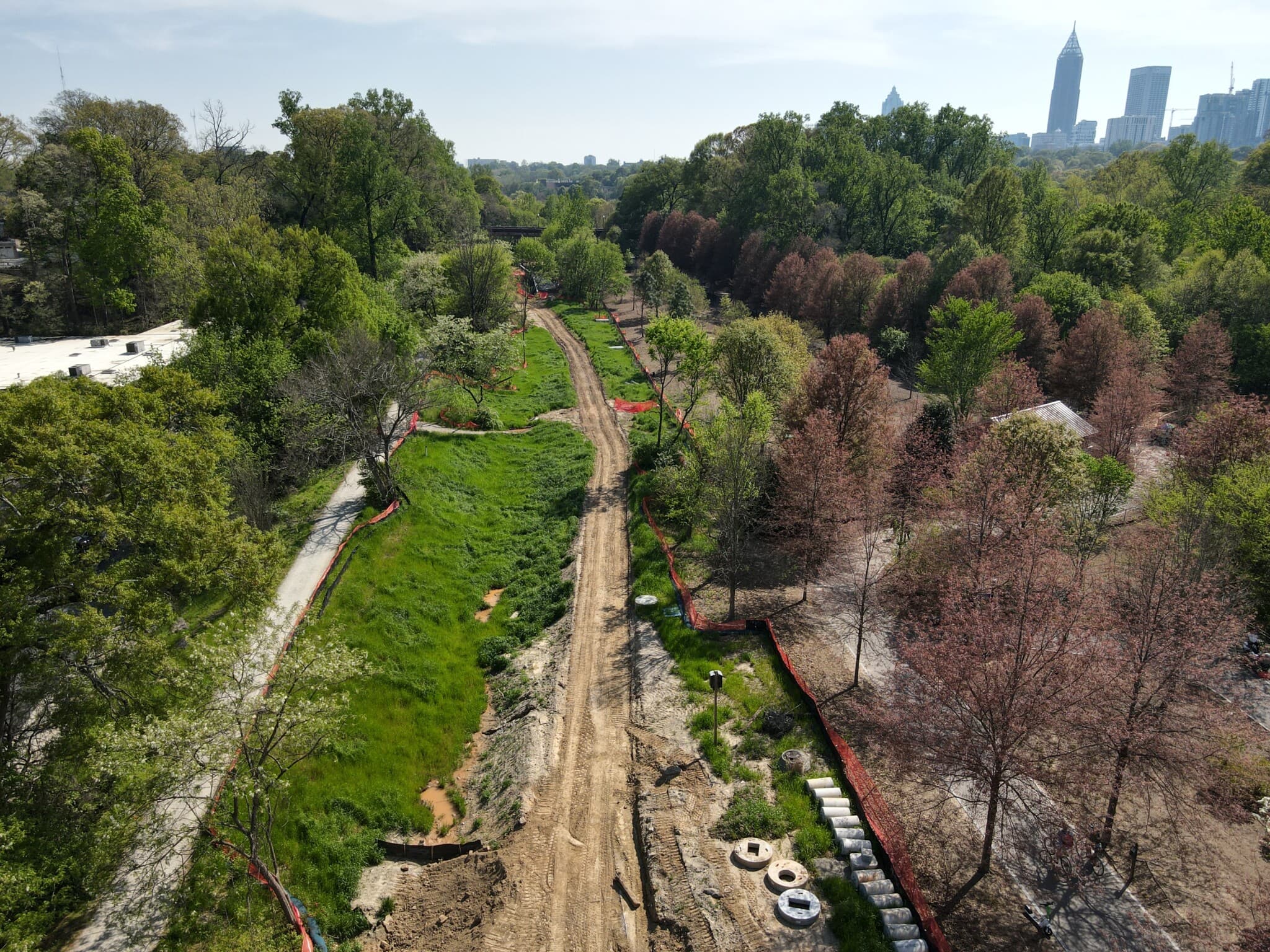Atlanta Beltline, Inc. Budget Accelerates Trail Completion and Expands Affordable Housing Goals
$172M budget funds more affordable housing and enables acquisition of remaining land needed to finish 22-mile trail
- Affordable Housing
- Design & Construction
- Atlanta Beltline‚ Inc.

The board of directors of Atlanta Beltline, Inc. and Invest Atlanta have approved the passage of Atlanta Beltline, Inc.’s $172 million budget for fiscal year 2025, the Beltline’s largest budget to date. The budget includes funding that will enable the Beltline to exceed their affordable housing goal of 5,600 units by 2030 and accelerates the pace of trail construction to meet planned completion of the 22-mile corridor by the end of 2030.
The budget is the largest so far for the project, as the mechanisms for funding the Beltline continue to successfully deliver the funding needed for the Beltline’s trail construction schedule, which is ramping up to meet the 2030 deadline for completion.
The budget represents a 12% increase over the FY 2024 budget and includes funding to exceed the 5,600-unit affordable housing goal by about 30%. The budget also includes funding needed to purchase land parcels required for trail completion.
“This is a historic and exciting time for Atlanta Beltline as we get closer to completing the trail while meeting important goals,” said Atlanta Beltline, Inc. President and CEO Clyde Higgs. “For us, the Beltline is all about the people and the experience. The people-powered project is a destination for cultural connection, quality of life and economic equity. Supported by our new budget, we will exceed our goals for affordable housing, accelerate the pace for trail work and invest in more economic opportunities for all.”
Affordable housing continues to lead the use of Beltline Tax Allocation District (TAD) funds, the largest portion of funding, representing 29%, – almost a third – of all planned TAD spending for FY25. The majority of the Beltline affordable housing budget includes plans for additional housing site acquisition, due diligence, and predevelopment. The budget also covers maintenance and restoration costs for the existing 86 acres that have been acquired through the Beltline’s land acquisition strategy. Those acres are actively moving through the development pipeline.
Even though development costs have significantly escalated since 2005, the Beltline is going to develop more affordable housing than set out by the 2005 Beltline Redevelopment Plan. Currently, the Beltline has 488 new affordable housing units in the pipeline for 2024 and will add another 626 units in 2025. Beyond the FY25 budget, $16 million in TAD collections during FY24 have been committed to affordability for developer incentive awards, and $23 million is currently available for awards to developers that meet affordability requirements set by Invest Atlanta and the Beltline.
Recent examples of affordable housing developments along the BeltLine include the 56-unit Stanton Park Apartments project in Peoplestown, 160 units of senior housing at Englewood Manor in Chosewood Park and the Ralph David House adaptive-reuse development in Reynoldstown that includes 54 permanently supportive affordable housing units.
Under the FY25 budget, the Beltline also will acquire land parcels required for trail completion – mostly for the Northwest Trail. This move will accelerate Beltline trail construction, which is slated to be completed by the end of 2030. The Beltline previously announced that 16.3 miles of continuous mainline trail will be completed prior to Atlanta hosting the World Cup in 2026. In FY25, the Beltline will have 13 active construction projects and by June 2026, 85 percent of the mainline trail will be complete, totaling 17.5 miles, which includes 16.3 miles of continuous paved trail from the city’s Westside Park to Piedmont Park, from the Blandtown neighborhood in the northeast around the southside of Atlanta to Piedmont Heights in the northeast.
Atlanta Beltline has four primary funding sources:
TAD makes up 40% of the FY25 budget, or $69 million
Philanthropic sources make up 29% of the budget or $49 million
Beltline’s Special Service District (SSD) is 18% of the budget or $32 million
Federal, state and local agency grants are 11%, or $20 million.
The top three areas of the total Beltline FY25 budget are design and construction at 49%, real estate at 23% and affordable housing at 12%.
The newly approved budget also includes funds for a small business grant program launch, the expansion of the Atlanta Beltline Marketplace small business incubator program, and the continuation of the Business Solutions Center, all of which make it possible for small, startup and disadvantaged businesses to open and grow along the Beltline. The Beltline also will increase its community engagement efforts under the FY25 budget, including planning for public transportation, and intentionally improving communications through social media, website and other outreach methods.
Subscribe to In The Loop, our monthly newsletter, for Beltline news, events, announcements and more.